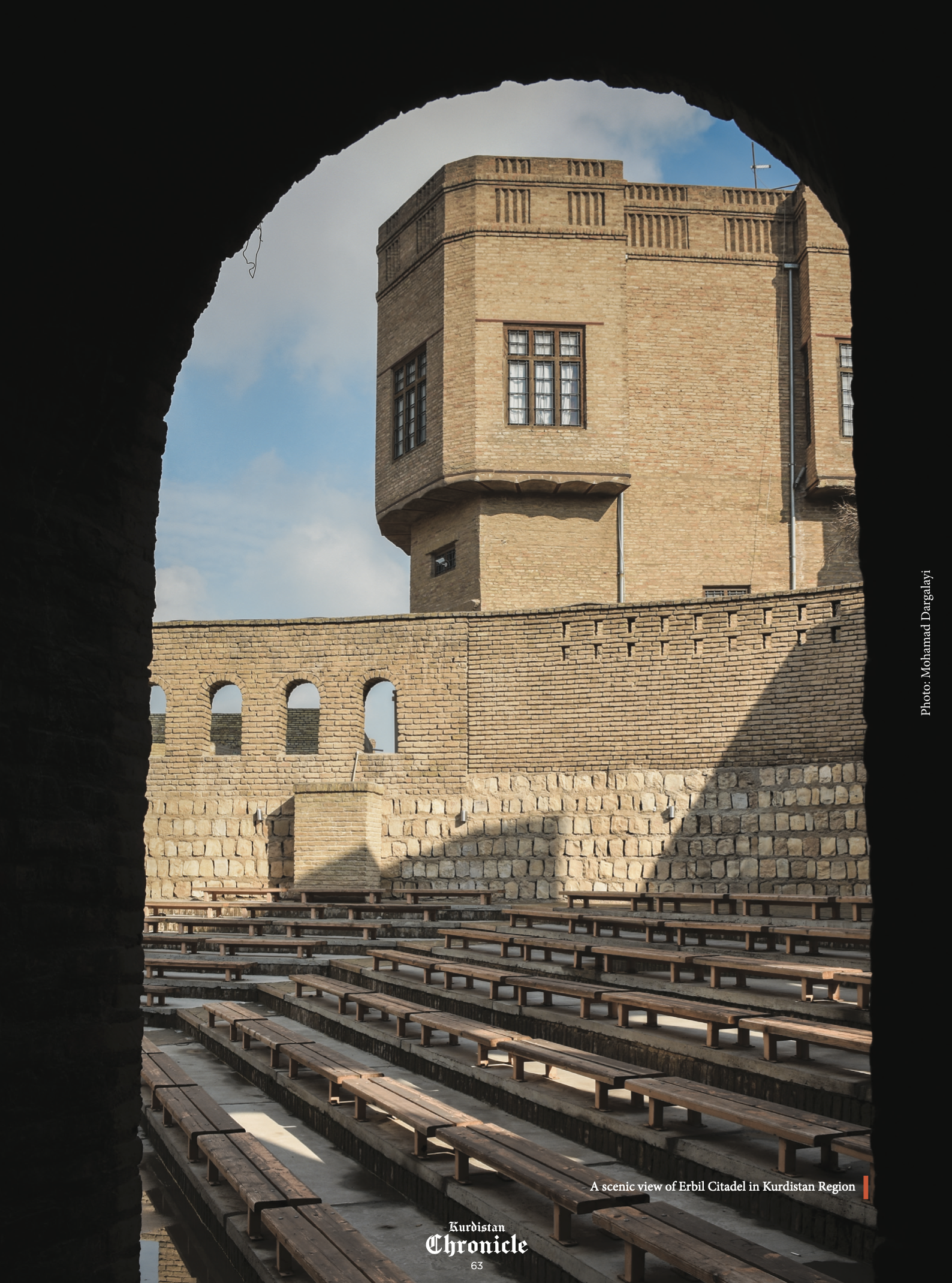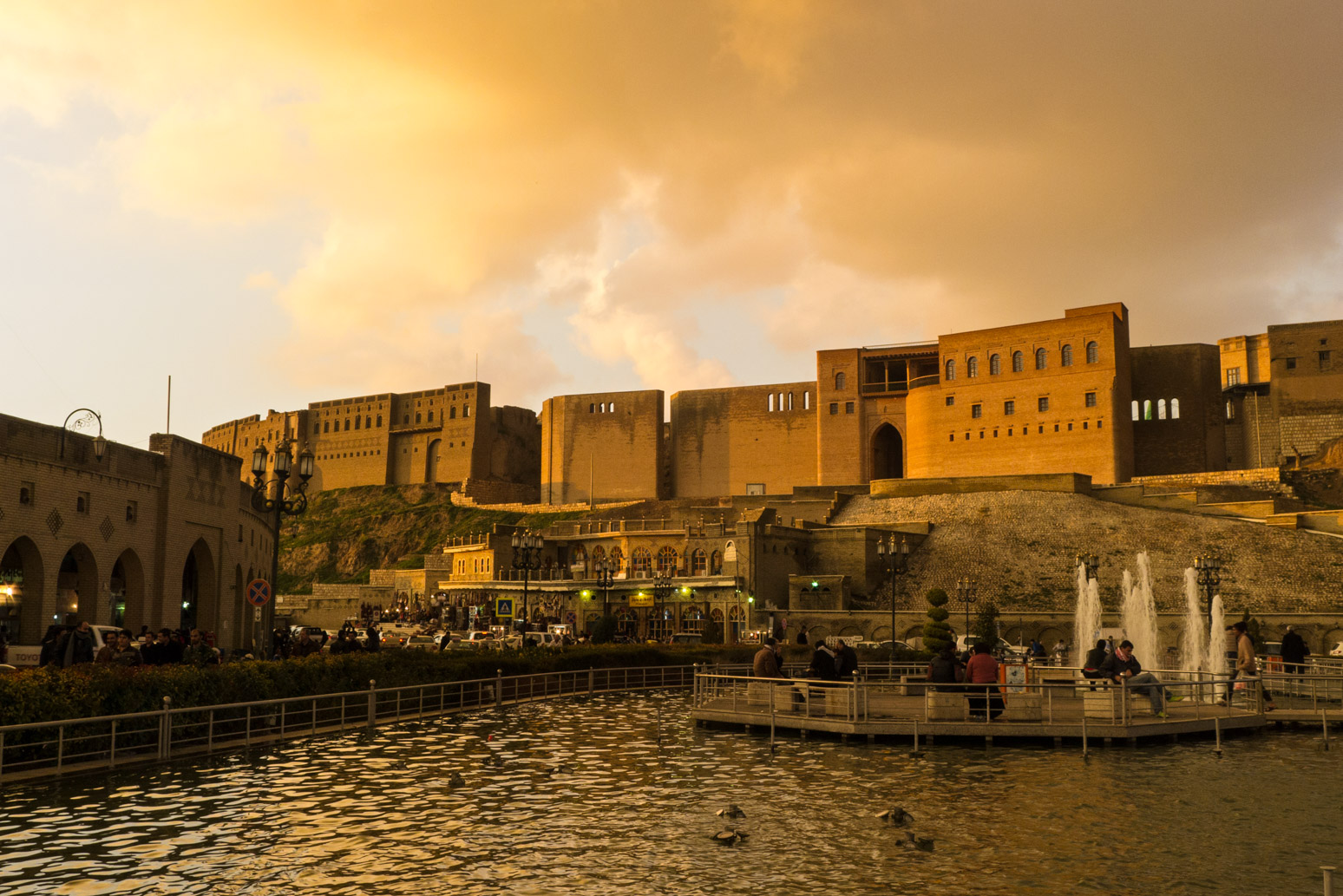Erbil is one of the oldest continuously inhabited cities in the world – and quite possibly the oldest. The city’s ancient Citadel, now at the center of the modern capital of the Kurdistan Region of Iraq (KRI), has a history that is both long and unique. Archaeologists have found pottery fragments showing people lived on the mound when the earliest cities were built in Mesopotamia during the Sumerian period.
The immense antiquity of the city, which archaeological evidence suggests has been lived in for six thousand years – an astounding length of time spanning much of the length of known human civilization – gives the modern city of Erbil, and the whole of Kurdistan, a globally important asset, which could be of significant value to the future development of the city and the KRI. UNESCO added the Erbil Citadel to its World Heritage list in 2014, placing it in the company of some of the most famous sites in the world, such as the Great Wall of China and the Pyramids of Giza in Egypt.
The name Erbil first appears in the historical record in cuneiform tablets produced over 4,000 years ago, as the University of Cambridges Assyriologist John MacGinnis has shown in his wonderful book on the subject. Erbil’s location on the plain west of the Zagros Mountain range and east of the Tigris River placed it at the crossroads between Iran and Central Asia on the one hand and the Mediterranean on the other. A meeting point of cultures, Erbil has long been on the frontier in the clashes of some of the greatest empires in history – at various times the Citadel mound has been under the control of the Sumerian, Assyrian, Seleucid, Parthian, Roman, Persian, Abbasid, Mongol, Ottoman, and British empires among others.

Erbil’s heritage is a key asset for its future
As both a historian and strategy consultant with a specialization in, among other things, investment and economic development, I have spent many years thinking about the value of heritage, both in terms of its historical significance and as a driver of economic growth. As the Kurdistan Regional Government seeks to diversify its economy beyond oil and gas, the ancient Citadel of Erbil stands to be a major driver of growth. First, and most obviously, there is tourism, identified by the Kurdistan Board of Investment as a priority in strengthening the country’s economic infrastructure.
The Erbil Citadel and the Kurdistan Region already attract large and growing numbers of tourists, enticed by its beautiful countryside, pleasant climate, political stability, and security. According to government statistics, there were 6 million tourist arrivals to the KRI in 2022 and 4 million in 2021, a significant increase from 3.15 million in 2019 before the Covid-19 pandemic. Between June 2019 and February 2022, the tourism sector received $7.12 billion in investment, accounting for almost two thirds (64%) of all investment in the KRI during that period. As the revitalization of the Erbil Citadel continues, sensitive restoration and rehabilitation of the site’s buildings will make it more accessible and even more attractive to visitors. Having such a globally significant landmark at its center also gives Erbil the potential to attract tourists from much further afield and makes the city one of the pre-eminent destinations in the Middle East.

The ‘economics of uniqueness’
But the value of the Citadel to the future of the Kurdistan Region and the city goes beyond tourism. Studies across the world have shown heritage to be a catalyst for much wider social and economic benefits.
Heritage assets on the scale of the Citadel contribute more to the economy than simple direct financial revenues. They enhance the wider well-being and self-esteem of a city’s inhabitants. The physical prominence of the great mound at the city center, from which the road system emanates in concentric circles, serves constantly to remind all Kurdistanis and visitors alike of the continuing link to the ancient past. Few modern capitals, or cities of Erbil’s size in Europe and the Middle East, share this continuity. It helps put Erbil alongside Damascus or Rome, neither of which remains a major commercial center but are nevertheless famous worldwide, and serves, alongside the many other important heritage assets in the KRI, to magnify Kurdistan’s reputation across the world.
And this is where the Citadel is part of Kurdistan’s trump card in sustaining itself as an effective economy and proud society going forward. The cultural capital generated by a revitalized Citadel has the potential to be a key driver of future economic development and cultural prestige. As the world becomes more focused on knowledge-based industries, innovation is crucial to the emergence of high-value businesses in any economy. One encouraging aspect of the Kurdistan Region’s economic diversification agenda is the support for innovation-led businesses that draw on knowledge and ideas to develop new technologies, methods, and business models to boost growth. From AI to biotechnology, from digitization to e-commerce, the need to attract and retain talent is a major challenge for any economy. Talented graduates, leading academics, and successful entrepreneurs need reasons to stay in a place.
In a world that is ever more globalized, spectacular heritage assets such as the Citadel of Erbil serve to differentiate places. Research by the World Bank and others has shown that there is a strong correlation between high cultural capital and innovation. The best minds can live and work anywhere in the world – they want to be in attractive environments. They want to be stimulated culturally and intellectually. The KRI is putting huge effort into making the country one of the best places for innovative entrepreneurs to develop and for investors to enter the market. The Citadel adds an indescribable dimension to all this and helps make Kurdistan one of the most desirable destinations to visit, live, work, and do business in the region.
Dr Christopher Tilley is a historian, land economist, and chartered surveyor who has taught at King’s College, University of London and now advises governments, businesses, and other organizations on strategic planning. He is Managing Director at Portman Gate Advisory Ltd, a professional Member of the Royal Institution of Chartered Surveyors, a Member of the Royal Historical Society, and a Fellow of the Royal Geographical Society.

